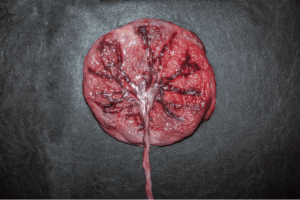
Becoming aware means gaining a clear understanding of one’s emotions and thoughts. It is fundamental to psychotherapy yet remains an underexamined process in dialogical therapies. Although described using various aspects such as mindfulness, insight, and metacognition, all emphasize helping clients make new connections or recognize previously unnoticed psychological experiences. Awareness is widely recognized as a common factor in therapeutic change, supported by major therapeutic models and empirical evidence linking increased awareness to improved functioning and symptoms. However, awareness alone is not always enough without any action, strong therapeutic therapy, and motivation.
A recent study published in Perspectives on Psychological Science aimed to develop a meta-framework explaining how “becoming aware” functions as a core process of therapeutic change across dialogical therapies. This framework describes how awareness develops during psychotherapeutic dialogue (cognitive map expansion and mental navigation).
Awareness does not arise simply by providing the clients with solutions. It needs an internally driven exploration that expands their cognitive maps. Therapists must guide their clients to navigate beyond familiar thought paths so new insights can be integrated meaningfully. This mental navigation was supported by a conceptualization process, which helps clients uncover hidden patterns, understanding, and therapeutic changes. The development of a new framework complements earlier models while offering a clearer and more practical approach that promotes long-term behavioral learning.
In this meta framework, researchers propose that cognitive maps expand through mental navigation. Researchers suggest that many changes depend on a shared foundation, such as clients becoming aware of new or reinterpreted information. When individuals challenge their beliefs or rethink their experiences, their mental map may grow. This framework can guide research by testing whether self-exploration activates hippocampal-entorhinal mapping systems, whether therapy recognizes these mental maps, and whether insights are formed through one’s own exploration rather than given solutions. This produces a measurable semantic network and cognitive changes.
The framework’s findings showed that clients used spatial metaphors during self-exploration. This suggests that therapists can intentionally use navigational language to guide awareness. Visual tools such as cognitive maps may also support tracking the clients’ progress and meaningful understanding.
The framework is illustrated through a hypothetical case of Michael. He is 28 years old and comes to therapy feeling lonely and believing that “No one helps me.” His thinking follows the same narrow path, always ending in withdrawal and disappointment. Using the “mental map” concept, the therapist helps him explore parts of his inner world he usually avoids. Through guided questionnaires, Michael realized that he rarely asks for help and learned during childhood that showing need felt unsafe. These findings open new “paths” in his map. With repeated exploration and navigational metaphors, he begins to see connections between the present and the past. His familiar beliefs expanded, and new connections emerged, like fear of rejection, desire to connect with people, and the learned avoidance of his needs.
This framework focused on expanding mental maps rather than classic defense mechanisms, viewing unprocessed experiences as lacking clear representation. Therapy can create change even without deep verbal analysis, though self-exploration remains important. Meaningful change occurs from both map expansion and improved navigation within existing maps.
This framework suggests that awareness emerges through cognitive map expansion, i.e., mentally exploring beyond familiar patterns to form clearer and more useful representations. This highlights internal exploration as fundamental to therapeutic change and future research.
Reference: Kabrel N, Aru J. Becoming aware through internal exploration: understanding psychotherapy on conceptual and neurobiological levels. Perspect Psychol Sci. 2025. doi:10.1177/17456916251378430















